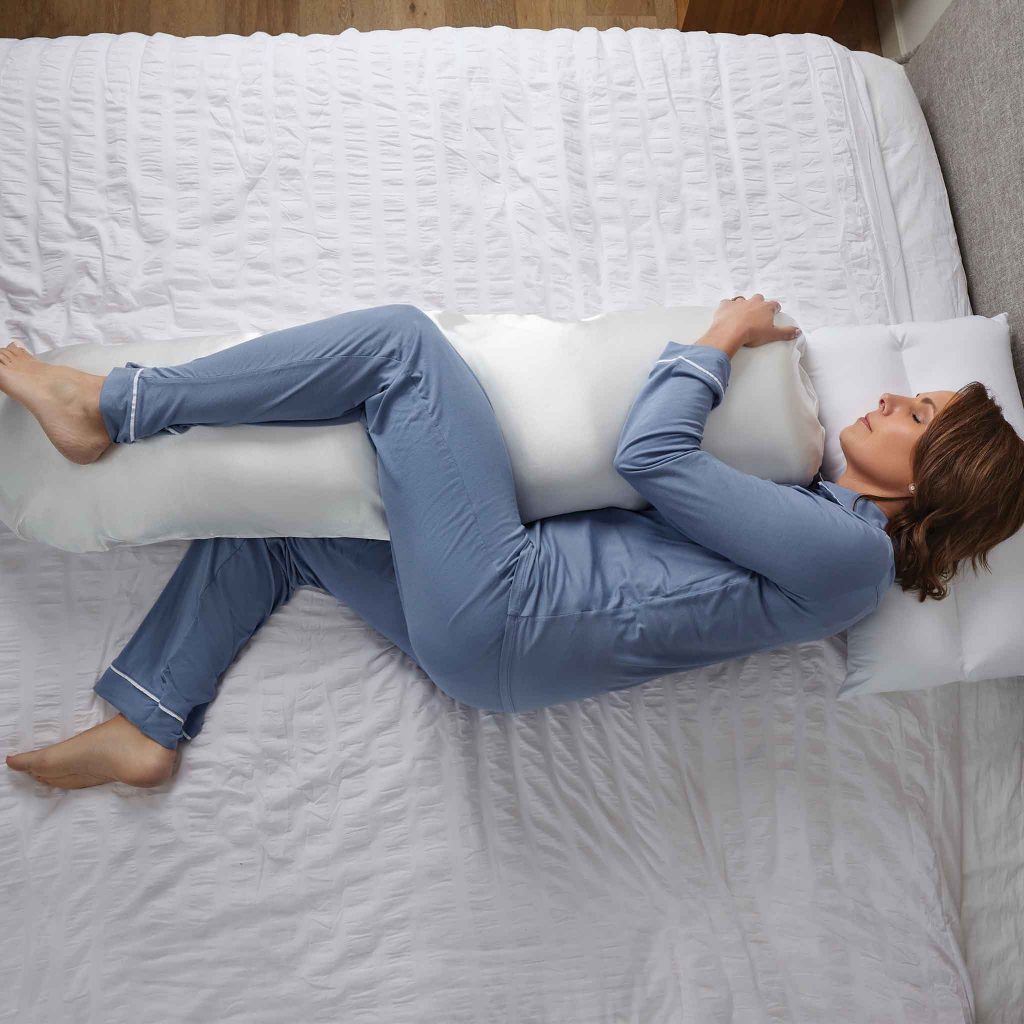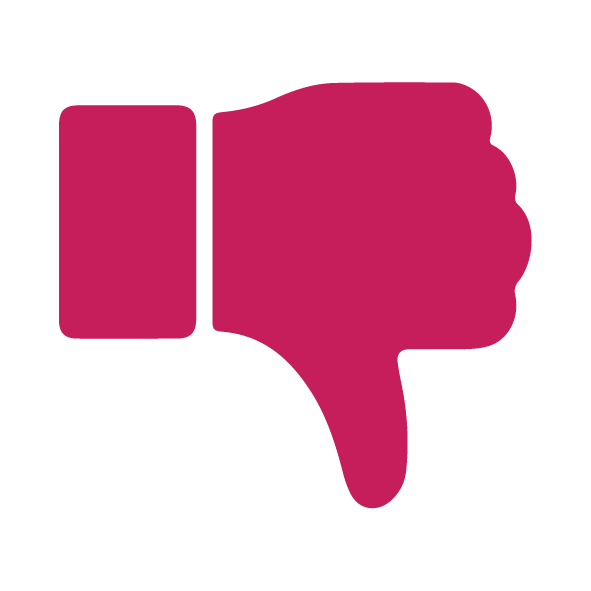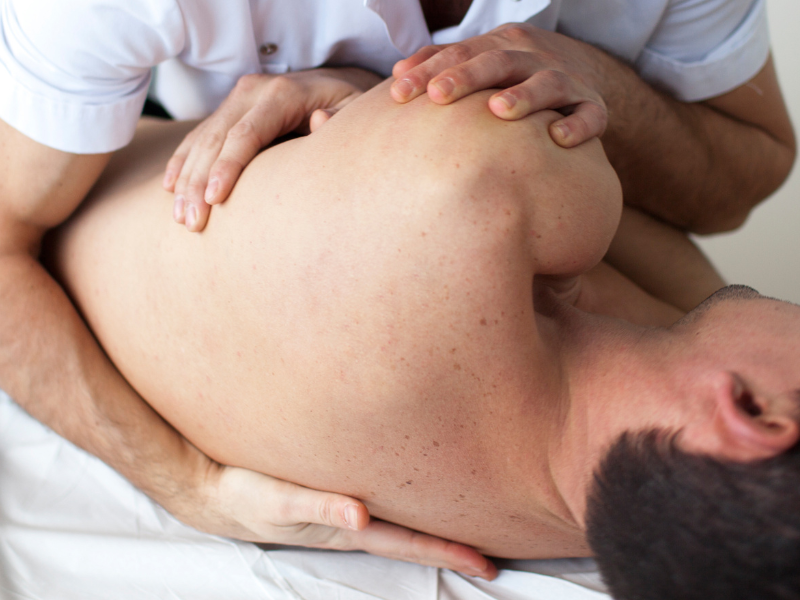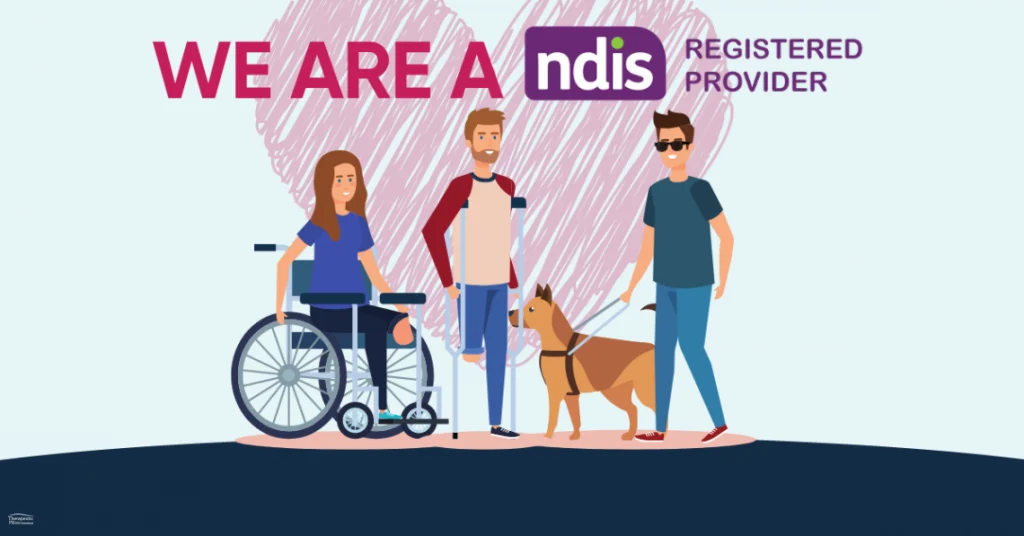A good night's sleep is essential for overall well-being, as it allows the body and mind to rejuvenate and prepare for the challenges of the day ahead.
Read more: REM Sleep Behaviour Disorder: How Body Pillows Can Improve Your SleepHowever, some sleep disorders can disrupt this process, leading to potential injuries and sleep disturbances. One such disorder is REM Sleep Behaviour Disorder (RBD). In this blog post, we will explore what RBD is, how it is diagnosed, its symptoms, and how placing body pillows can help prevent injuries to you and your partner while promoting a better night's sleep.
What is REM Sleep Behaviour Disorder (RBD)?
REM Sleep Behaviour Disorder is a neurological sleep disorder characterized by the loss of muscle atonia during REM (Rapid Eye Movement) sleep, which leads to the acting out of vivid dreams physically. Normally, during REM sleep, the body undergoes temporary paralysis to prevent individuals from physically acting out their dreams. However, in people with RBD, this paralysis mechanism malfunctions, resulting in uncontrolled movements, such as kicking, punching, or flailing during sleep.
Diagnosing REM Sleep Behaviour Disorder
Diagnosing RBD involves a thorough evaluation of an individual's medical history, sleep patterns, and any reported symptoms. Polysomnography, a sleep study that monitors brain activity, eye movements, muscle activity, and other physiological parameters, is the most reliable way to diagnose RBD. Additionally, a detailed analysis of dream-related behaviours is also crucial for a definitive diagnosis.
Symptoms of REM Sleep Behaviour Disorder
The symptoms of RBD can vary in intensity and frequency from person to person. Common signs and behaviours associated with RBD include:
- Vocalizations: Shouting, yelling, or talking during sleep due to dream enactments.
- Violent Movements: Kicking, punching, and other uncontrolled actions during REM sleep.
- Disturbed Sleep: Frequent awakenings, difficulty falling asleep, or feeling restless during the night.
- Injuries: In some cases, individuals may inadvertently injure themselves or their sleeping partners while acting out their dreams.
- Vivid Dreams: People with RBD often experience intense, vivid, and sometimes disturbing dreams.
- Daytime Sleepiness: Due to disrupted sleep, individuals with RBD may experience excessive daytime sleepiness, leading to fatigue and reduced cognitive function during waking hours.
The Importance of Preventive Measures
As RBD involves physical movements during sleep, it poses potential risks of injuries to both the affected individual and their sleeping partner. Placing body pillows strategically can be an effective preventive measure to minimize these risks and promote a better night's sleep.
Body Pillows and RBD
Body pillows are specially designed to support the entire length of the body, providing comfort and promoting healthy sleep posture. For individuals with RBD, these pillows can be beneficial in several ways:
- Restraint and Stability: Placing a body pillow alongside the affected individual can provide a physical boundary, reducing the chances of accidental injuries to themselves or their sleeping partner. This restraint can help limit the range of motion during sleep, preventing aggressive movements.
- Proper Sleep Positioning: Body pillows, like the Lucky One Pillow, can encourage better sleep posture, aligning the spine and reducing strain on muscles and joints. This can improve overall sleep quality and reduce the risk of injuries resulting from awkward sleeping positions.
- Sense of Security: Body pillows can offer a sense of security and comfort to individuals with RBD, potentially reducing anxiety and stress, which are known triggers for sleep disturbances.
- Sleep Partner's Safety: For couples sharing a bed, placing a body pillow between partners can act as a buffer, reducing the risk of injury to the non-RBD partner if the affected individual experiences dream-enactment behaviours.
- Improved Sleep Quality: Creating a comfortable and safe sleep environment can lead to better sleep quality for both the affected individual and their partner.
Scientific Studies Supporting the Use of Body Pillows
Several scientific studies have explored the efficacy of using body pillows to enhance sleep quality and safety, especially in cases of sleep disorders like RBD. A study published in the Journal of Clinical Sleep Medicine (JCSM) examined the effects of positional therapy, including the use of body pillows, on RBD patients. The results demonstrated a significant reduction in harmful behaviours during sleep when body pillows were used as part of the therapeutic approach (JCSM, link).
Another study conducted by the National Center for Biotechnology Information (NCBI) investigated the impact of body positioning on sleep quality in individuals with various sleep disorders, including RBD. The study found that adopting a proper sleep posture, facilitated by the use of body pillows, resulted in improved sleep efficiency and reduced sleep disturbances (NCBI, link).

REM Sleep Behaviour Disorder can significantly impact the quality of sleep for affected individuals and their bed partners. While diagnosis and proper medical management are essential, preventive measures can play a vital role in reducing the risk of injuries during sleep episodes. Placing body pillows strategically can provide a sense of security, promote better sleep posture, and act as a physical boundary to minimize the chances of accidents due to limb movements.
At Therapeutic Pillows, we understand the importance of a good night's sleep, and our body pillows are designed to offer maximum comfort and support. By incorporating body pillows into your sleep routine, you can enhance the quality of your sleep, alleviate potential risks associated with RBD, and wake up feeling refreshed and rejuvenated.
Remember, quality sleep leads to a healthier, happier life – so invest in better sleep today with our range of therapeutic body pillows!
Do you want to learn more? Read our Frequently Asked Questions for...
REM sleep, also known as rapid eye movement sleep, is a crucial stage of the sleep cycle. While the exact amount of REM sleep needed can vary from person to person, it generally makes up about 20-25% of our total sleep time. This means that for an average adult who sleeps for around 7-8 hours per night, they would typically need about 1.5-2 hours of REM sleep. However, it's important to note that REM sleep duration can change throughout the night, with longer periods occurring in the later sleep cycles.
During REM sleep, our brains are highly active, and this stage is associated with vivid dreaming and memory consolidation. It plays a vital role in our overall well-being, including cognitive function, emotional regulation, and learning. Getting enough REM sleep is essential for maintaining a healthy sleep pattern and ensuring optimal brain function. If you find yourself consistently lacking REM sleep or experiencing disruptions in your sleep cycle, it may be helpful to consult a healthcare professional for further guidance and support.
 0
0 0
0To improve the amount of REM sleep you get, there are a few simple steps you can take. Firstly, establish a consistent sleep schedule by going to bed and waking up at the same time every day, even on weekends. This helps regulate your body's internal clock and promotes better REM sleep. Secondly, create a relaxing bedtime routine that includes activities like reading a book or taking a warm bath. Avoid stimulating activities, such as using electronic devices or consuming caffeine, close to bedtime as they can interfere with REM sleep. Lastly, ensure your sleep environment is comfortable, cool, and dark, as these conditions promote better sleep quality, including REM sleep. By following these tips, you can increase your chances of enjoying a good night's sleep with sufficient REM sleep.
 0
0 0
0








